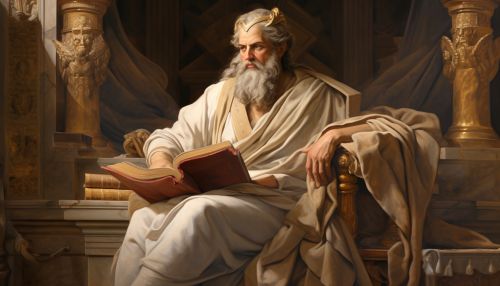Political philosophy
Introduction
Political philosophy is a branch of philosophy that explores questions about politics, including the nature and origins of government, the examination of political behavior, the distribution of power and resources, and the conduct of political leaders. Essentially, political philosophy is the study of what is good, just, and lawful in the political sphere.
Historical Overview
The study of political philosophy has a rich history, dating back to ancient civilizations. The earliest known political philosophies were developed in ancient Greece, India, and China.


In ancient Greece, philosophers such as Plato and Aristotle made significant contributions to political philosophy, with Plato's The Republic and Aristotle's Politics being among the most influential works in Western political thought.
In India, the ancient text of the Arthashastra, attributed to Chanakya, is a treatise on statecraft, economic policy, and military strategy. Similarly, in China, the works of Confucius and Laozi laid the foundation for Confucianism and Taoism, respectively, both of which have significantly influenced Chinese political philosophy.
Key Concepts in Political Philosophy
Political philosophy is a complex field with many key concepts. These include the nature of justice, the ideal form of government, the relationship between the individual and the state, the distribution of wealth and resources, and the role of law and legal systems.
Justice
Justice is a central theme in political philosophy. It involves questions about what is fair, what is right, and what is just in society. Different political philosophers have different views on what constitutes justice. For example, some philosophers argue that justice is about ensuring that everyone has equal access to resources and opportunities, while others argue that justice is about rewarding those who contribute most to society.
Government
The form of government is another key concept in political philosophy. There are many different types of government, including democracy, monarchy, dictatorship, and theocracy. Political philosophers often debate about which form of government is best. Some argue that democracy is the most just form of government because it allows all citizens to participate in decision-making. Others argue that certain forms of dictatorship or monarchy may be more efficient or stable.
Individual and State
The relationship between the individual and the state is a central concern of political philosophy. This includes questions about the rights and responsibilities of individuals, the limits of state power, and the balance between individual freedom and social order. Some political philosophers, such as John Locke, argue for a strong emphasis on individual rights and freedoms, while others, such as Thomas Hobbes, argue for a strong state to maintain social order.
Distribution of Wealth and Resources
The distribution of wealth and resources is another key issue in political philosophy. This involves questions about who should own resources, how they should be distributed, and what is a fair distribution. Some political philosophers, such as Karl Marx, argue for a more equal distribution of wealth and resources, while others, such as Adam Smith, argue for a free market system where resources are distributed based on supply and demand.
Law and Legal Systems
The role of law and legal systems is a critical aspect of political philosophy. This includes questions about the nature of law, the role of the judiciary, and the relationship between law and morality. Some political philosophers, such as John Rawls, argue for a strong role for law in ensuring justice and fairness, while others, such as Friedrich Hayek, argue for a more limited role for law and a greater emphasis on individual freedom.
Major Political Philosophers
There have been many influential political philosophers throughout history, each contributing their unique perspectives and theories to the field. These include figures such as Thomas Hobbes, John Locke, Jean-Jacques Rousseau, Immanuel Kant, John Stuart Mill, Karl Marx, Friedrich Nietzsche, John Rawls, and many others.
Contemporary Issues in Political Philosophy
Today, political philosophy continues to be a vibrant field, with philosophers addressing a range of contemporary issues. These include questions about global justice, the rights and status of refugees, the legitimacy of international institutions, the ethics of war and peace, the impact of technology on politics, and the challenges of environmental sustainability.
